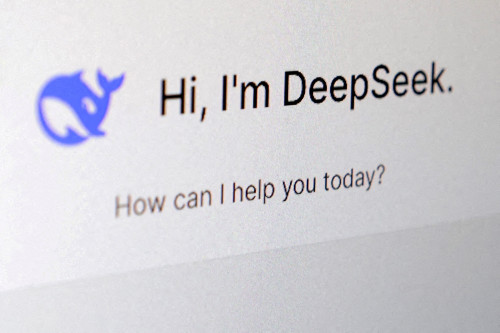WASHINGTON (Reuters) -TikTok and its owner Bytedance on Tuesday sued to stop a law that would give its Chinese parent about a year to divest the U.S. assets of the short-video app, or face a nationwide ban.
Here is a look at the effort to ban the app.
WHY ARE US OFFICIALS FORCING A DIVESTMENT OR BANNING TIKTOK?
U.S. officials warned TikTok’s management is beholden to the Chinese government and fear Beijing could use the social media app to influence the 2024 U.S. elections, Director of National Intelligence Avril Haines told a House of Representatives intelligence committee hearing in March.
Many U.S. lawmakers from both the Republican and Democratic parties and the Biden administration also say TikTok poses national security risks because China could compel the company to share the data of its 170 million monthly U.S. users.
The Department of Justice recently told lawmakers that because ByteDance is headquartered in Beijing, TikTok’s American users are at risk because foreign governments like China’s “are known for their surveillance and censorship.”
TikTok has denied that it has or ever would share U.S. user data, accusing American lawmakers in the lawsuit of advancing “speculative” concerns
WHAT DOES THE LAW MEAN?
In an election year when many politicians do not want to be seen as soft on China, the legislation is part of a series of moves responding to national security concerns. Officials in both political parties have raised red flags about TikTok along with other issues ranging from connected vehicles to advanced artificial intelligence chips to cranes at U.S. ports.
On the other side, many younger voters oppose a ban because they use the app to express their views and follow politics. Earlier this year, President Joe Biden’s re-election campaign joined TikTok to reach young voters ahead of the November presidential elections.
WHO VOTED IN FAVOR OF THE DIVEST OR BAN LAW?
The House passed the law 360-58 with broad bipartisan support as part of a $95 billion legislative package that also provides security assistance to Ukraine, Israel and Taiwan.
Days later, the Senate approved the legislation and U.S. President Joe Biden signed it into law.
The TikTok measure stems from legislation introduced on March 5 by Republican Congressman Mike Gallagher, who resigned in April, and Representative Raja Krishnamoorthi, the committee’s top Democrat, with more than a dozen other lawmakers.
Detractors include Democratic Representative Ro Khanna who has said he felt a TikTok ban may not survive legal scrutiny in courts, citing the Constitution’s free speech protections.
A number of prominent Democrats in the House voted against the bill, including Alexandria Ocasio-Cortez, Cori Bush and Pramila Jayapal.
“There are serious antitrust and privacy questions here, and any national security concerns should be laid out to the public prior to a vote,” Ocasio-Cortez said at the time.
HOW WOULD A BAN BE ENFORCED?
The law gives TikTok’s Chinese owner ByteDance about nine months to divest the U.S. assets of the short-video app. The deadline could be extended by three months if the president determines there is progress toward a sale.
It is unclear whether China would approve any sale or if TikTok could divest its U.S. assets by the deadline.
If ByteDance failed to do so, app stores operated by Apple, Alphabet’s Google and others could not legally offer TikTok or provide web hosting services to ByteDance-controlled applications.
In theory, the ban would make it difficult, if not impossible, for users to access TikTok in the U.S.
IS TIKTOK BANNED IN OTHER COUNTRIES?
India banned TikTok along with dozens of other apps by Chinese developers in June 2020, saying they could compromise national security and integrity. Nepal’s government banned the app in November 2023.
Several countries, including the U.S., Australia, Canada and New Zealand have banned TikTok from federal government-owned devices.
(Reporting by David Shepardson and Chris Sanders; Editing by David Gregorio, Sharon Singleton and Lisa Shumaker)




